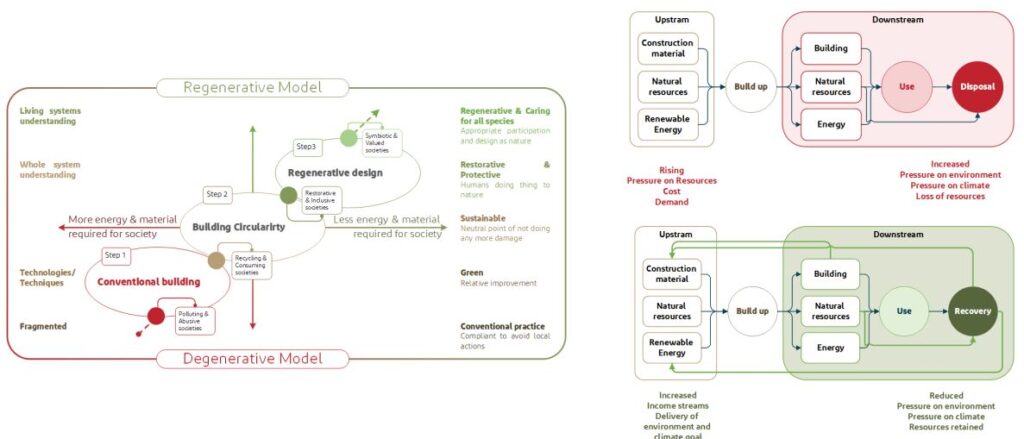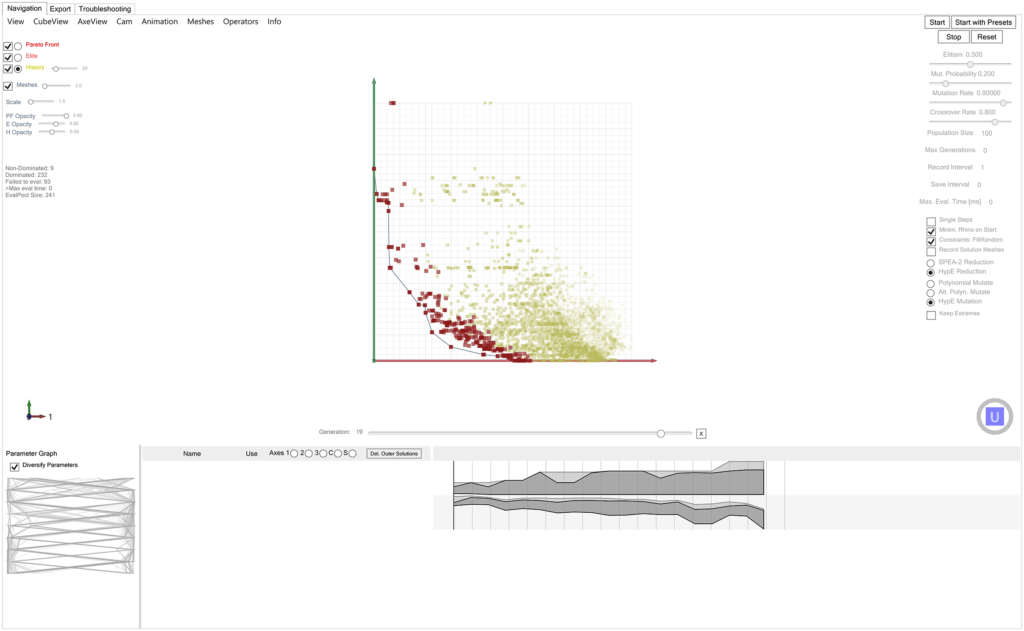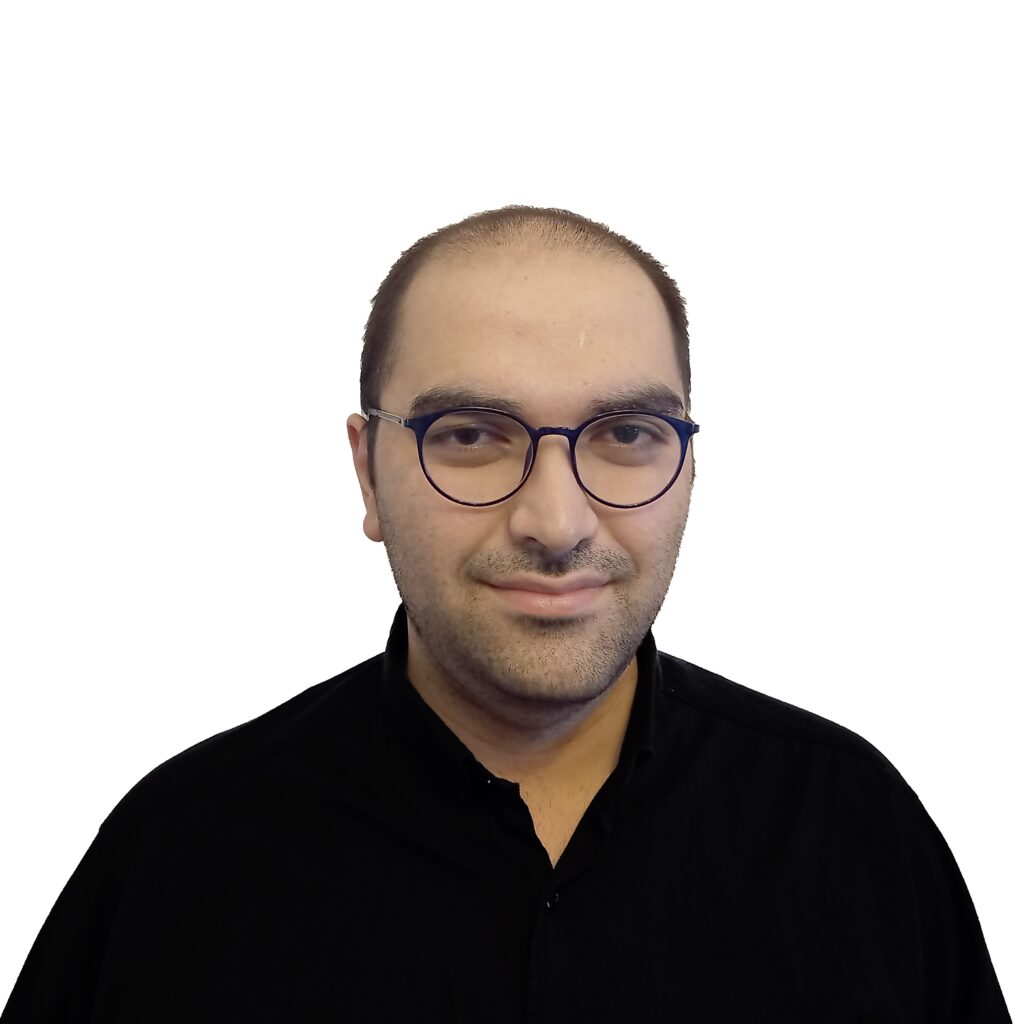Regenerative Design and Optimization
Instructors: Iman SheikhAnsari / Shaghayegh Honarvar
Dates: 22 July – 24 July / 12:00 – 18:00 GMT (8:00 – 14:00 EST)
Themes: Computational Design / Material Studies / Performative Design
Software: Rhinoceros 3D, Grasshopper 3D, Ladybug Tools
Number of Students: 60
Workshop is full please refer to live stream during and after the workshops


Description:
This workshop introduces the concept and principles of regenerative design and optimization in architecture and how they can create buildings that restore and replenish the resources they use and enhance the resilience and well-being of their occupants. Regenerative design is a practice that engages the natural world as the medium for and generator of architecture, creating structures that are integrated with their ecosystem. Optimization is a process that seeks to improve the performance and efficiency of buildings, using data and tools to model and evaluate different design scenarios.
The workshop will cover the following objectives, learning outcomes, and activities:
Objectives:
- To comprehend the concept and principles of regenerative design and optimization in architecture
- To examine the benefits and challenges of applying regenerative design and optimization in architecture
- To explore the tools and methods for regenerative design and optimization in architecture
- To apply regenerative design and optimization in a real-world case study
Learning Outcomes:
By the end of the workshop, participants will be able to:
- Define regenerative design and optimization in architecture
- Identify the key features and elements of regenerative design and optimization in architecture
- Compare and contrast regenerative design and optimization with sustainable design
- Evaluate the environmental, social, and economic impacts of regenerative design and optimization in architecture
- Use data and tools to model and optimize regenerative design solutions
- Design a regenerative building that enhances resilience and well-being


Activities
The workshop will have three interactive sessions, including lectures, discussions, exercises, demonstrations, and group work. The workshop structure for each day is as follows:
Day 1: Introduction to Regenerative Design and Optimization in Architecture
- Lecture: The concept, importance, principles, and goals of regenerative design and optimization in architecture
- Discussion: Examples, challenges, and barriers of regenerative design and optimization in architecture
- Exercise: Assessment of the building or site using a regenerative design checklist
- Demonstration: Introduction to some tools and methods for regenerative design and optimization
- Group work: Selection of a case study and preliminary analysis
Day 2: Modeling and Optimizing Regenerative Design Solutions
- Lecture: The process, criteria, metrics, and trade-offs for modeling and optimizing regenerative design solutions
- Discussion: Best practices, guidelines, and communication strategies for modeling and optimizing regenerative design solutions
- Exercise: Modeling of different scenarios for the case study using the tools and methods introduced
- Demonstration: Introduction to advanced tools and methods for regenerative design and optimization
- Group work: Optimization of the scenario based on the feedback from the tools
Day 3: Designing a Regenerative Building that Enhances Resilience and Well-Being
- Lecture: The strategies or techniques for integrating regenerative design features into the building
- Discussion: Examples of regenerative buildings that enhance resilience and well-being. How they address the needs, preferences, context, culture, climate, users, etc.
- Exercise: Creation of a conceptual design for the case study using a sketching tool or software. Incorporation of regenerative design features that enhance resilience
Instructors:

Iman SheikhAnsari:
Iman SheikhAnsari, a developer, researcher, and educator in computational design and sustainability. I research machine learning applications in solution space development and, more broadly, how AI can augment open innovation for sustainable and personalized futures. I have taught at various universities and institutes in Iran and have worked as a sustainability consultant for Iranian and British architectural firms.

Shaghayegh Honarvar:
Researcher and specialist in Regenerative design in architecture with a studied background in M.Arch. in sustainable architecture, by the approach of Life Cycle Assessment (LCA) and Circular Economy (CE). Since October 2021, she has been teaching LCA and CE theoretically and via One Click LCA software. Consulting and supporting zero carbon and energy building projects is part of what she does as a sustainability architecture and LCA expert.


